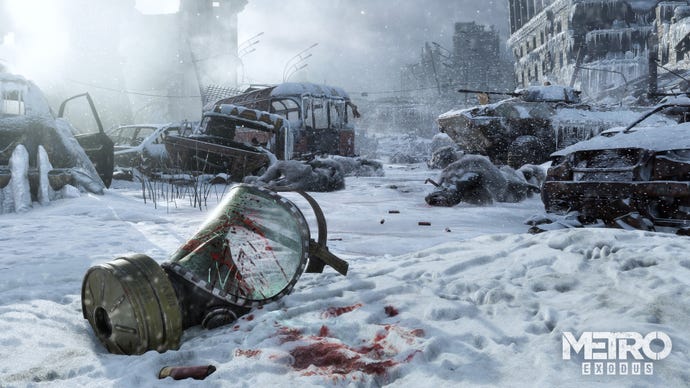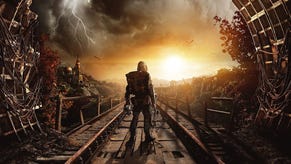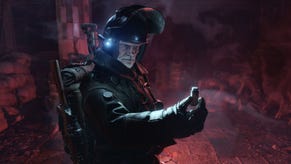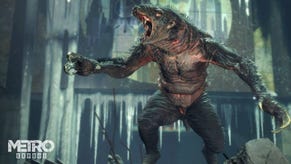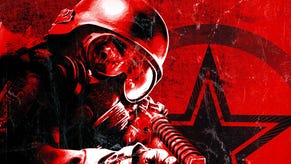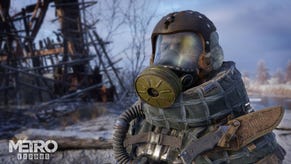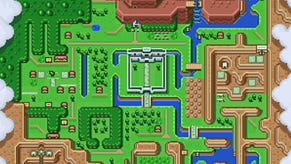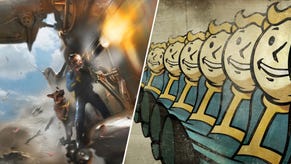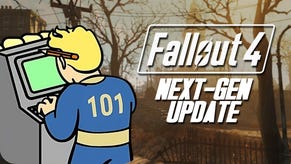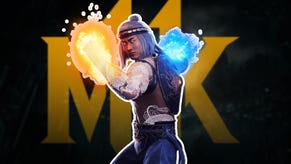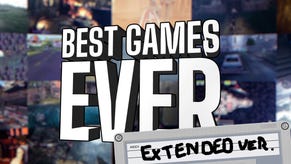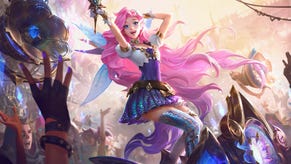An unabridged interview with Metro 2033 author Dmitri Glukhovsky
I recently wrote a feature based on an interview conducted with Dmitri Glukhovsky, the Russian author of the Metro books and games.
Since the conversation was so interesting, I thought it would be a good idea to put the entire transcript online for people to read through. In it, we talk about politics, writing for video games, video game publishers, the failed Metro movie adaptation, and more. Enjoy!

I was looking into how the first Metro book evolved. You posted it online and had readers who you said became beta testers who were picking holes in the economy, locations, fact checking and that sort of thing. It was interesting to see the parallels there with how modern video games are developed.
Oh wow, that's an interesting angle. Of course. But it wasn't a conscious decision to mimic or copy the way modern video games are developed, which through beta testing also make great progress while offering partly free content to the gamers before rolling out a paying premium version. Belonging to that generation that was raised with video games and games culture as a part of their day-to-day cultural context and social context, I started gaming when I was maybe ten with the first Nintendos. I got my first 86 processor computer like PC when I was maybe 12 or 13 and ever since I kept upgrading. I played the first Wolfenstein as it was just released. Even at the time, my screen was black and white which made it look more like the wartime movies. Of course, the culture of pirating and sharing, the culture of beta testing, it's just day-to-day curation and experience that I couldn't help but employ and transponding to other spheres of my life. Also, sharing and crowdsourcing things, when we think about other book authors having trouble understanding game developers, first of all we should blame the age gap. Some of them are probably just too old.
I know who you are talking about here.
Yes, that guy. I'm not blaming them, but they just were born too early. That's not their fault. They were born perfectly well for film or TV adaptations, but they don't really feel video games. I'm not very proud, because there is nothing to be proud about. It's just a part of day-to-day culture and context.
It's interesting as well because if you didn't do it that way, the book originally ended with Artyom dying, right?
Yeah.
Which means we might not have got Metro Exodus, because Artyom is still alive.
Totally. That came from the fact that from the early days I decided to use the internet because I was rejected by the conventional publishers. I decided to use the opportunity of self publication online in order to get to the reader. The most important thing to me was after the several years I spent writing Metro was to get to the reader. The internet was there and was the most convenient way of getting your text, your ideas, whatever your life experience was to the readers and getting the feedback from them. Because, of course, every writer is an attention whore and we all want feedback. We want to be appreciated. We want to be evaluated. We want to hear compliments and we actually prey on the reader's energy. That's a natural thing. If you are not allowed to do that conventionally through this brick of paper, then you should find new ways. That's what I did 16 years ago.
That was a long time ahead of ebooks and Amazon wasn't there. Blogs weren't even there. That was a very natural decision as well. I didn't think back at the time that I was doing anything innovative, although I ended up doing that. The thing is that Andrew Prokhorov, the creative lead at 4A, he actually discovered my story online before it became a printed book. He was sent a link by a friend who recommended it to him and he read it overnight and the next morning he wrote to me. Ultimately, the decision to publish the entire story online and not care much about money but care about the readers proved to be a great strategy. Since it works it was the exact thing I've been doing ever since; publishing everything that I write in a new media, on social networks including Russia's analog of Facebook, VK.com, who now have, after years of our cooperation, rolled out instruments for story publication, for text publication, for long-read publication. You can attach a pdf, you can add pictures and soundtracks and stuff and I've been using that. Now is the time of podcasts is coming, we're launching a project with Storytel, the Swedish company. It's an audio series project where it's structured as a TV show like a drama show, but it's actually audio. That's about trying new formats.
I know Metro is a product of your environment, but I read earlier that you were inspired by the Fallout games...
Very much so by the first Fallout games. One of the sources of inspiration was Fallout 1 and 2, the isometric RPGs. And I was so inspired by Fallout when I was a student that once I went to cook my pasta and I was in such a hurry to get back to my desktop that I poured boiling spaghetti over my knees and luckily enough it was just inches away the most valuable thing that I have. That's just to explain the extent of my passion for Fallout 2 back at the time. Also, not just that of course, but the books by the famous Soviet science fiction authors the Strugatsky brothers who wrote Roadside Picnic (Пикник на обочине), later adapted as Stalker and another work of theirs called The Doomed City (Град обреченный) which also has this incredible romanticism of abandoned urban spaces where you become the new master and you can explore the empty streets and empty buildings and everyone's gone and you roam through empty apartments full of the belongings of other people. So this is something very romantic and very dreamy that can also be accounted for as an inspiration. And there's some movies of course. There's a very famous Soviet movie called The Letters of a Dead Man (Письма мёртвого человека), also about the post apocalypse. Altogether, that's shaping your art references that inspire you. Then you build up on that and you become the inspiration for someone else and that's how creative things work.
I find it really interesting. The American post-apocalypse generally is quite playful and occasionally optimistic. Soviet post-apocalypse is grim and menacing. Where do you think that difference comes from?
I believe Western European post-apocalypse stories mean zombie stories or just virus stories or whatever. They have this cheerful tonality because they free Western society of the laws and obligations and turn the very known and well understandable urban environment to no man's land, where everything is possible and where you can dehumanise human beings and murder them, which is the case with zombies. Especially Americans, but also people in Western Europe - wherever zombies are popular - they are popular because people are tired of rules, people are tired of laws and people need their animal nature to come out. Zombies give you a fairy tale that allows you to smash the head of your neighbour in a legal basis because they've been dehumanised. It's human but not and it's a legitimate target now. That's one thing. It's the total freedom of legal limitations that a mortal being has to abide by. We're increasingly becoming further and further from the caves, from our animal nature. The more human we become, the less natural we become.
The popularity of the zombie tales and the Western style post-apocalypse is the consequence of this. In Russia, it doesn't make much sense as we are living in a zombie land. It was in a bigger zombie land in the 1990s when everything was possible and people got tired by that very soon. This incredibly nostalgic, bleak, regretful tonality of the Russian post-apocalypse stems from the fact that we had this feeling just like people in the Dark Age and medieval times that the Golden Age of civilisation was long gone and you were looking into the past with a great nostalgia thinking that the higher the paramount of culture and science and civilisation was already gone and whatever you were looking at forward, like you had a view, is bleak and horrible and you fear the future because you know for sure that every tomorrow is going to be worse than every today. You look back with awe and admiration and nostalgia and you miss all these days and you understand they are gone forever and you have no hope or future. This is what we had in the 1990s and we still have; regretting the old empire that was one of the two mightiest empires and was feared and respected and that was also taking care in recent years of its population because not like in the Stalin times, in the Brezhnev times when we were given social guarantees, free medicine, free education. It was not a land of plenty, but people felt that they were being taken care of. In the 90s when everything collapsed and people were basically left alone and ceased to exist, per se - just the penitentiary system and the police kept on existing but they turned into private businesses and the police started to earn money squeezing from people. All that said, people looked into the past, into this collapsed huge empire that was no longer, that collapsed politically, geographically, financially and people were left all in their own in a decaying urban environment which is precisely the description of what's going on in the Metro books where the great awe, inspiration and nostalgia weren't willing to come back.
In this regard, you can understand the feelings of Russians and the euphoria they had following the annexation of Crimea because Putin simulated for them restoration of this former empire to its greatness. This was, of course, an illusion and I'm totally personally against that, but if you regard this total popular euphoria from the viewpoint of psychoanalysis, this is where it's getting you. Russians were great, they lost their greatness, they lost their social security and they're just looking back and the old, good times with nostalgia. Metro is a metaphor of this. The people in Metro are locked in the museum-like environment of marble and granite of their metro station, their half museum-like, half temple-like, but definitely it's all constructed by the ancestors in a very traditional neo-classic, Stalinist style and they are locked underground in these museum-like spaces with monuments glorifying the old days gone and they cannot expand this space as the technology is lost and they cannot get out of it because the surface is not suitable for them to leave, at least as they think in the first two books.
But in Metro 2035, throughout the plot of the book, which prepares the players for the story of Metro Exodus, the main character is making the discovery of how and why actually the life outside of the bunkers, of metro, was possible, an why for two decades people in the stations and tunnels of Moscow and all these tiny weird quasi city states, people did not know that life outside the metro was possible. How did they ignore it? There is a sudden change in story and tonality between Last Light and Exodus. In Last Light, all you know from the plot is that life is not possible outside the metro and that's precisely why people fight tooth and nail for every square inch of land and every drop of water and fresh air. That's why the stakes are so high, because no-one can go outside. How come that in the trailers of Metro Exodus, you are all of a sudden see this armoured beautiful train going through huge Russian beautiful territories, not even wastelands, but something that looks very inspiring and beautiful and not contaminated. How come?
I always saw it as a comment on xenophobia, of what happens when communities retreat inwards and they're scared of outside threats.
This is the story of Metro 2033. Metro Last Light, the game, that's the story of manipulated confrontations between political factions and how people refuse to learn from the great mistakes of the past and how they repeat the old mistakes just copycatting, or copy pasting even, the old ideologies, not really giving account that they're just copying it brainlessly and that's pretty much what's happening between America and Putin. Putin is getting inspiration of the Soviet days and Trump is swearing he'll make America great again like in the 50s and 60s without acknowledging, at least not openly, that these days are gone and you have to embrace the future. Metro 2035 was a comment very much on what the reason behind Russian euphoria after the annexation of Crimea was and after this war that Russia is waging on the Ukraine. I was very surprised at the time that we Russians were so happy to return to the concept of Cold War and that we turned out to be so lost during the 20 years of our freedom without having a proper enemy to oppose. Not that we really want a war. No-one wants a war. But we like the concept of being in a confrontation with a mighty enemy that wants our demise and we have to resist. It's through resistance that we like to define ourselves. We don't understand who we are without knowing who our enemy is.
Once we understand who is our enemy, once we locate the enemy - the Americans - everything goes better. We know we are not like Americans. We're not capitalist, we're not imperialist because that's what America is. When there is no enemy, we are lost. We're getting bored. We're not really happy with the society of consumption because it doesn't give you the feeling of purpose in your life. But when you are in a struggle, then the question of 'what's the purpose of this life?' is solved perfectly. Very brilliantly, the question of why we are here and what the project is is solved. But still, for me, because I'm like really pro-Western, globalist, progressive and I don't think this new postmodern idiotic concept of Russia and the West was necessary at all. I think it's just a manipulation in order to keep the population mobilised and make them swallow the economic hardships that were the result of the oil prices dropping. Why do I understand that why does the majority of people not understand that? For me, that was totally a discovery, and a very sad discovery - just how easily people can be affected by propaganda formulating for them pretty idiotic and easy messages such as 'We were betrayed, this is why we lost the Cold War, now we were becoming stronger but Americans wanted to finish us off, and this is why they got to us through the Ukraine and this is why we have to resist and so on' - resistance and make Russia great again. All the nationalist cliches from the past, from Nazi Germany and wherever - all the revisionist, idiotic cliches, why do we swallow them again?
You've got it with Brexit, Trump, too.
Totally, man. That was a cold shower thing. I didn't expect that we would be susceptible to these basic propaganda messages, and we were. Metro 2035 was, in a way, an attempt to discover how and why do we prefer to believe comfortable lies than face uncomfortable truths. Why - and this is the central metaphor for the book - do we prefer in a f**king bunker? Why don't we want to go outside and open our eyes and see that there is life out there. Why is it cosier and easier for us to stay in the bunker? That's exactly what the story of Metro 2035 is about. It's preparing for Metro Exodus. A discovery is made in this book that there is life outside and they have to explore now. That's what they're doing in Metro Exodus.
Do you think games can get these messages across as well as books then?
Absolutely. I've always used the opportunity to make political statements in Metro games precisely because games can and have the right to make these messages. Games are getting to a way broader audience than books do, that's the reality we have to face. And games can be just as emotional. If you put the right words in the mouth of the right character, it's got a function. After all, it's not the time to try and manipulate the poor gamers in some kind of tricky, cheesy story. No, not at all. Basically the message I'm trying to get is that the totalitarian regimes are all alike and I'm trying to make the gamers - as well as my readers - more susceptible when the official propaganda is trying to manipulate them. What I'm trying to make them do is make them think and question easy truths.
A lot of authors are very upfront about the politics in their works, but many game developers say that their games have no political themes, even when they clearly have political themes. What do you think that's all about?
Well, basically, the only problem with that is that game developers operate with big budgets and they face publishers. Publishers don't want to repel any kind of political position, they just want to have all consumers. This is precisely they would try not to take sides, be it Republican or Democrat, pro or against Brexit, whatever. They want them all. They want money. But it's not that I'm taking sides. Really, in the Nazi versus communist conflict, it's difficult to take sides, even if you come from a former communist country. My message here is more complicated, probably, but as I just said, I'd rather try to educate people than manipulate them. There is so much media that want to oversimplify the big picture for you.
Basically, there's the Sky News approach and there's the BBC News approach. Sky News is telling you the picture that you buy easier because it's addressing your known needs. It's giving what you want to have. Whereas, the BBC is trying to bring you up and educate you. Then, when it's shaping your new tastes and trying to make your tastes better because it doesn't depend on the end sales, then it creates a new market for more educated people that it's trying to bring up. Then, it's feeding this new market with more sophisticated messages and more sophisticated stories. So I don't think that all games should necessarily oversimplify things because people wouldn't understand more sophisticated things. Games can be a medium of educating people and it can be a medium of making people's mind more flexible and more apt for learning new things. Already Metro stories are pretty exotic. Already, for me, it's kind of a surprise that after all these years are becoming a part of the mainstream. A story set in the subway of Moscow in Russia after a nuclear war where people hide and there are suggestions of a supernatural component, that sounds like a pretty weird mash-up. But weirdly enough, it's not. If you really give time to go and explore it all of a sudden it starts to make sense. Every fairy tale is just a metaphor, it just speaks about something that's very relevant to everybody. Without that, it wouldn't become read and popular.
Like the ghosts in Metro are warnings from the past.
Totally. Warnings from the past, and warnings about not repeating the past mistakes. Weirdly enough I made these statements when they were purely theoretical. The first Metro book was written in the late 90s and early 00s. The games have been in development for the first decade of this century. And weirdly enough, back at the time, we didn't have the impression that the old mistakes are going to be repeated. But right now, following what's happening in Russia and the Ukraine since 2014, after Crimea, and this Russian intrusion in the East of the Ukraine, what's happening in America with Trump, what's happening in Britain with Brexit, what's happening in Germany with the rise of new nationalism, all this suddenly is becoming very, very relevant. From a purely theoretical story of taking inspiration and aesthetically tremendous totalitarian ideologies of the past and from the oversimplified or even animalist messages of propaganda of the past, you are on a new level bringing us into the past instead of bringing us into the future. People are just eating that happily.
That's the biggest, and the saddest, discovery for me, that people seemed to have learnt so little, that the politicians would be irresponsible for the sake of getting to or keeping the power, they would try to manipulate people in every possible way and in a way that works. That for me is no discovery. I don't believe that any person with the right conscience would go and do politics, definitely not in Russia. But that people would be so lazy and so reluctant to just read the f**king history books and understand that the manipulation that's being exercised on them is exactly the same that was exercised on their grandfathers and ultimately, brought the world to the biggest carnage ever. That to me is the real discovery and that to me is the biggest challenge. That justifies this controversy of introducing political and social comments and messages in such a mass-market artform as video games.
With Last Light, you had a big involvement in writing the story, right? Is it the same here with Exodus?
Totally. The story of Exodus was elaborated in connection with the 4A team and as I said it continues the story of Metro 2035, so all the main characters migrate to Metro Exodus from the book Metro 2035. The dramatic collision and the conflicts migrate there, so there's this triangle that is the cornerstone of this new game which is Artyom, his wife Anna and Anna's [father] Colonel Miller and the conflict that is set up comes from Metro 2035. In Metro 2035, Artyom doesn't give up hope of finding other survivors on Earth so everyday he is wearing his worn-out biohazard suit to be able to climb up to the surface and go on top of buildings just to try and browse the radio waves and find some kind of frequencies and a signal from survivors. And everyday he is, of course, getting a new dose of radiation and every day the hopes of his wife Anna to have healthy children from him become slimmer and slimmer and that creates conflict with him and with Miller, who of course wants to have grandchildren. This triangle and the very complicated relationships migrate from the book into the game. Then I created this band of brothers that are on-board Aurora train that is actually going out on a Trans-Siberian railway journey and so I developed these very important sidekicks for that story and their stories and their names and their backstories and arcs and such.
Dialogue, too?
Well, yes. I've gone through the entire dialogue. But I've been fixing the stories and the dialogue for the main characters. The NPCs that you are going to be encountering elsewhere have been mostly been created by the 4A team, although I've read all of it and fixed the most crucial things that I thought were important. The entire idea of making this new game outside and turning it into a journey of an armoured train on the railway, that was originally their idea but it felt good to me because I'm also a huge fan of the Trans-Siberian and of the Russian rail journeys. I've been in love with the railways since I was a very little kid because my grandmother lived some ten or 12 hours away on a train from my parents so every school holiday, two or three times a year, I'd go to see her on the railway through the snow, through the rain or the summer, that was the romantic part of my childhood, probably.
I've dreamt about making a story on a train journey much more than I've ever dreamt of imagining myself as a pirate going through the ocean. That just coincided. Then I got the idea to interweave it with the story of Metro 2035 that some locations are suggested... I'd say there was a lot of back and forth and it was a real collaboration. On another hand, I really do not believe that you should prescribe to other creative minds what to do. You should give them ideas, launch it to them and let them interpret it for you, with you. It should be back and forth. If the creative mind cannot interpret, cannot add new things, they will just lose their motivation, they will not sacrifice any part of their own soul to it. It's way better when you formulate something and throw it to them and they just kick it back with not too much creative control. They find talented partners and give them freedom.
Has that helped with your creative process? I read that you were worried about stuck and pigeonholed in the tunnels before.
Totally. Actually it's in English speaking countries as I am just known as the author of Metro. In Russia, Germany or Poland or France, they have other books of mind published, so they know that I've done different things as well, not just science fiction. So the last book that I wrote, the text has already been published across Europe and Russia. It's a contemporary thriller about a guy who is getting unjustly jailed because of a personal conflict with a police officer, gets out of the jail, murders the guy on the first day he's out because he is wasted drunk and the next morning discovers that he committed the murder and he has the guy's mobile phone - the police officer was trying to call for help - so not only has he escaped justice but he is pretending the guy is still alive by texting his relatives, girlfriend, colleagues, police in order to imitate the guy is still alive. But the longer he is doing that, the more he is getting involved in the guy's personal relationships and starts feeling for him, starts falling in love with his girlfriend, starts feeling guilt towards the parents and then becomes the guy, which threatens his security. The book is called Text. It's very different from the Metro stories and it's been adapted for stage in Russia.
In Moscow, there's a theatrical piece and there's going to be a movie production in January in Russia, maybe an American movie production as well. Now, I just wrote a theatrical process on the Holocaust and the next book I'm planning to write is a family drama and I'm doing a lot of political columns. The last five years, I'd say that I was able to find a way outside of Metro and try to do what very few authors do, which is do whatever they f**king want; not to do what the audience expects from them, not to do what the audience wants them to, but whatever.
You said you were working on a film - how's the Metro movie coming along? Is that still happening?
This process is unfortunately frozen because the project with MGM optioning this book and trying to developing a script had brought us to nothing and the rights reverted to me. So currently we are speaking with a new set of producers about a possible adaptation but this is a very long and difficult process. Everything has kind of stalled, unfortunately. I'm still optimistic. We'll see if the release of Metro Exodus can push the IP across a little bit the oceans and see how that works.
I'd like it to be set in Russia though. I don't like the idea of it being set in America. Why does everything have to be in f**king America?
Actually, two things. First of all, when they tried to adapt it they wanted it to be set in Washington DC - a lot of things didn't work out in Washington DC. In Washington DC, Nazis don't work, Communists don't work at all and the Dark Ones don't work. Washington DC is a black city basically. That's not at all the allusion I want to have, it's a metaphor of general xenophobia but it's not a comment on African Americans at all. So it didn't work. They had to replace the Dark Ones with some kind of random beasts and as long as the beasts don't look human, the entire [concept] doesn't work and the entire story of xenophobia doesn't work which was very important to me as a convinced internationalist.
It sounds like they were making it as generic as possible.
They turned it into a very generic thing. The writer did that and nobody liked it. The producer didn't like it, the studio didn't like it and the story didn't function after that. It was the details that were most important. Then of course they're kind of afraid of setting it in Moscow because Americans have a reputation for liking stories about America. Again, with Metro Last Light and Metro 2033, the books and the games, selling millions and millions of copies worldwide, it's probably not as improbable now that people would accept a story happening in Russia and in Moscow because that's going to be the unique selling point. We've seen the American version of apocalypse a lot of times and the audience that like the genre are educated and saturated and not really wishing to get anymore of that. The way to add something new would be to relocate the story and show for once the consequences of a nuclear war from the other side of the ocean.
